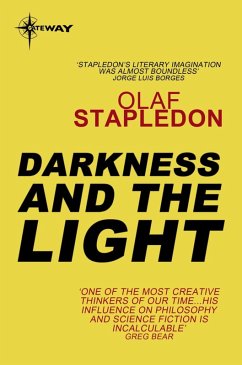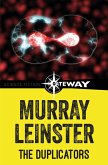Stapledon projects two separate futures for humanity, depending not on the outcome of World War II but on the failure or success of a future "Tibetan Renaissance" to influence the temper and ideology of the militaristic empires that threaten it.
Dieser Download kann aus rechtlichen Gründen nur mit Rechnungsadresse in A, B, BG, CY, CZ, D, DK, EW, E, FIN, F, GR, HR, H, IRL, I, LT, L, LR, M, NL, PL, P, R, S, SLO, SK ausgeliefert werden.









